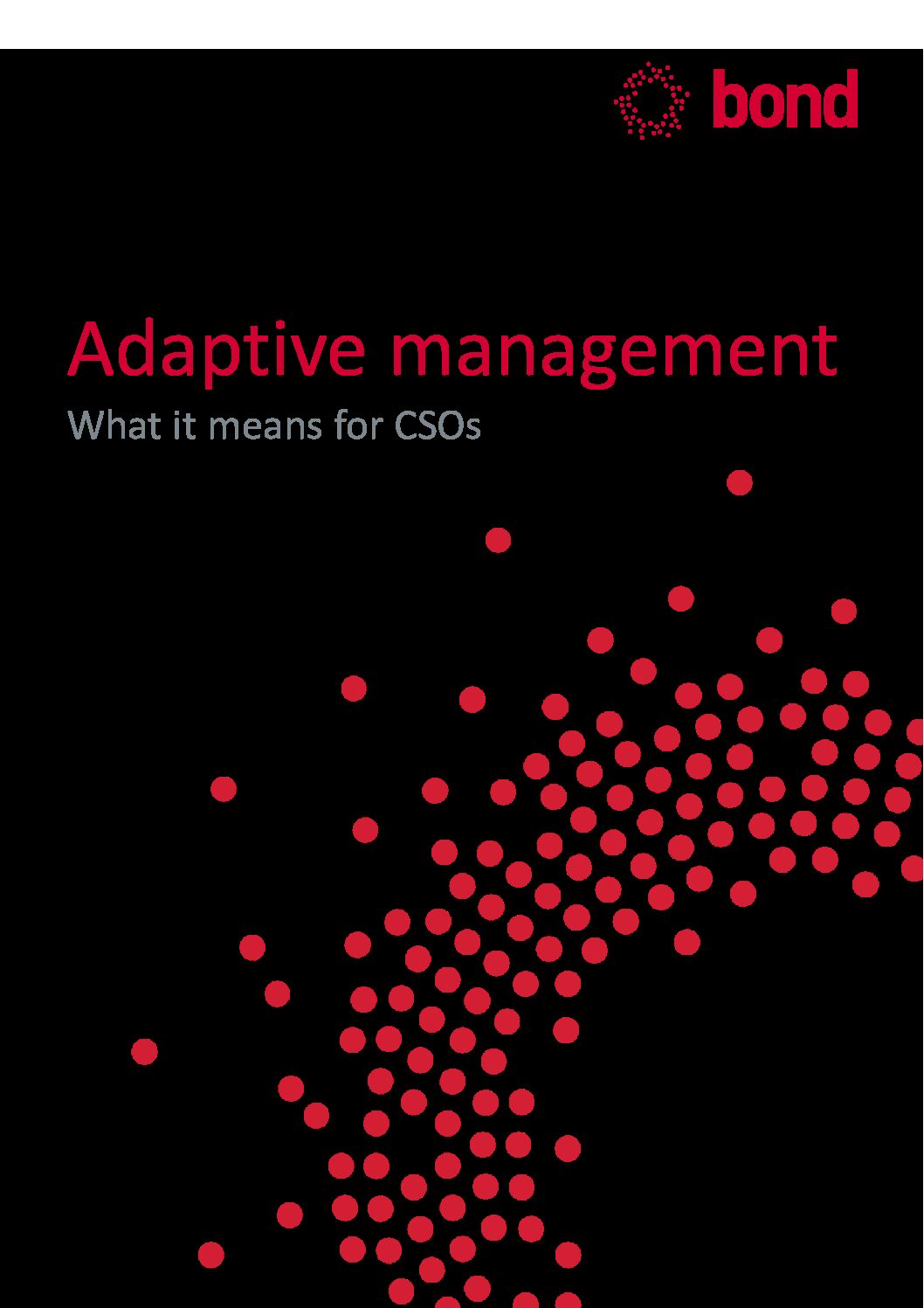This “introductory paper” from Bond provides insight into how CSOs can effectively use adaptive management, defined as a flexible exploratory approach to programming and development designed to address complex contexts in which knowledge of causation is low.
The key features of adaptive management and adaptive programming identified in the paper build on several of the same key elements found in RBP. These include a focus on “course-correction” within the lifetime of projects, rapid learning and feedback to inform changes, and an approach to accountability that focuses on progress towards agreed high level results and on learning.
Most relevant for RBP is the paper’s focus on the importance of the enabling environment for adaptive management, arguing that a “greater focus is needed on creating the right institutional and funding conditions.” Suggested areas of change include:
- Financial, procurement and grant management systems should be simplified in order to facilitate adaptive programming. Budgets, interventions plans, and results frameworks should be amenable to change in order to be fit for purpose for organizations attempting to effectively address complex problems.
- Accountability mechanisms should look for indicators of adaptive behavior. Uncertainty should be accommodated at project inception and evidence of learning and course-corrections should be rewarded as positive results in their own right.
- Greater local decision making autonomy should be enabled. Adaptive management requires a shift in organizational culture away from previous norms of detailed guidance, processes, and sign-offs, towards a culture of learning and adaptation in which delegated decision-making is supported.
- Adaptive competencies should be promoted by HR practices at an organizational level. In order to support adaptive management, organizational HR processes must recognize and recruit for personal skills and competencies such as curiosity, inquisitiveness, and entrepreneurialism.
- External communication strategies about international development problems should be recognized as a barrier to adaptive approaches. Current dominant communication strategies can often over-emphasize single solutions and/or single actors as the cause of change and under-emphasize the value of learning and course-corrections.
- Adaptive management approaches can and should be applied to the aid system itself. Effectively supporting adaptive approaches entails the recognition that the aid system itself is a complex problem requiring profound shifts in dominant incentive and organizational structures.
| Title of File | Language | |
|---|---|---|
| Adaptive Management: What it means for CSOs | English | Download |



